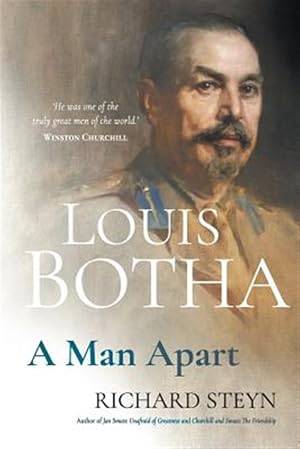Published by Jonathan Ball Publishers, 2018, softcover, 300 pages, condition: as new.
LOUIS BOTHA, THE FIRST PRIME MINISTER of the Union of South Africa, was a brilliant Boer general who won significant victories over the British in the early stages of the Anglo-Boer War. When the weight of the British arms eventually overwhelmed the Boers, Botha and Jan Smuts encouraged peace between English and Afrikaner and led the four South African colonies into Union in 1910. Botha was a big-hearted and generous man in his dealings with all. In 1914, he had to put down an Afrikaner rebellion over the Union's participation in the Great War. The experience broke his heart, as many of the rebels were old Anglo-Boer War comrades. At Versailles in 1919, representing South Africa, he pleaded unsuccessfully for magnanimity towards a defeated Germany. Globally respected, Botha and Smuts operated as a double act before Botha's untimely death in August 1919. Richard Steyn's recent books, Jan Unafraid of Greatness and Churchill and The Friendship , have won him a loyal readership. In Louis A Man Apart , he again masterfully brings to life a great South African.
While this book is a biography on Louis Botha, it also gives the reader an excellent understanding of the racial and imperial dynamics at play in South Africa from the 1890s to 1920.
Notwithstanding the fact that neither the English and Afrikaner powers (except to a limited extent in the Cape) did not want the non-whites to have the franchise, it highlights the tension between the enlightened Afrikaner who envisioned a united English and Afrikaans South Africa in the Commonwealth and hence on the world stage (Botha & Smuts) and conservatives who wanted nothing to do with the Commonwealth but wanted an (insular) Afrikaner Republic (Hertzog, Steyning etc). It explains how these divisions brought the country very close to civil war with the Afrikaner rebellion.
It goes into detail on how the English scorched earth policy and internment of Afrikaner woman and children in the Anglo Boer war created these tensions which surfaced violently, when South Africa was called upon to invade German South West Africa in World War 1 on the side if the Imperial forces only 12 years after the Boer war ended.
Throughout one realises that both Botha and Smuts were incredible visionaries in the context of South Africa's history at that time

